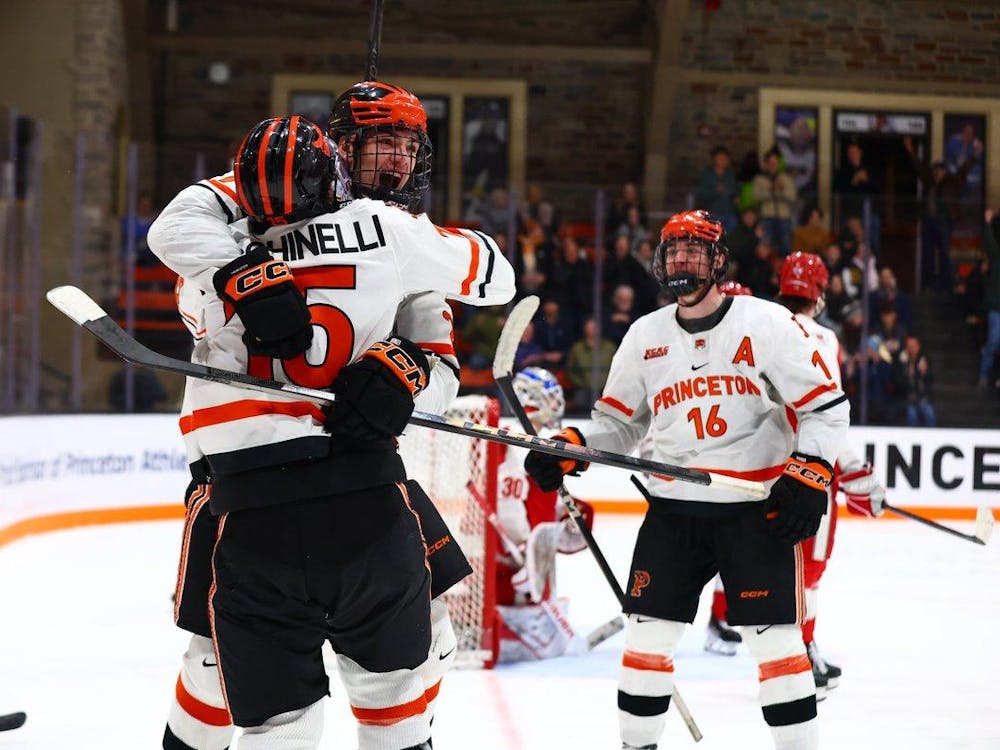On an ordinary, unassuming Thursday in East Pyne, 35 students attended a lecture that defied history — not for necessarily for its radicalism or ingenuity, but rather, for its existence.
Lecture series at Princeton are ubiquitous. Any given day, there will be a number of visiting professors, foreign dignitaries, and leading experts on almost every academic topic. But the one speaker series that every Princeton student should be attending is the Asian American Studies Speaker Series hosted by the Program in American Studies.
The existence of such a speaker series reflects the progress not only of Princeton but also of our nation. For too long, the voices and stories of Asian Americans have been ignored on a national level. This is because issues are often divided into the two distinct camps of white and black — an idea also known as the black-white binary paradigm of race. Rather than recognizing the full spectrum of color, we tend to conceptualize race into two polar opposites, ignoring whatever exists in that nebulous “gray” area.
Not wholly white or black, Asian Americans exist in a forgotten limbo in the American narrative — unseen and unheard.
Perpetuating their invisibility, many Asian Americans suffer from the perpetual foreigner stereotype in which they are never truly regarded as Americans. Questions like, “Where are you really from?” or “How is your English so good?” only serve to reaffirm this stereotype. Even those who are born in the United States are immediately assumed to be foreigners — perceived as an out-of-place installment in American society.
The perpetual foreigner stereotype is damaging because it disregards one half of Asian American identity, reducing Asian Americans to just their physical appearance. While the cultural Asian heritage is a vital part of being Asian American, the “American” half of the equation is just as essential.
Thus, the fact that there is an Asian American Speaker Series helps to reaffirm the importance of both parts of this identity, and the intersection between the two.
Beyond the more conceptual societal importance, the speaker series has a special importance for Princeton. Ever since the 1970s, Princeton students, especially those involved in the Asian American Students Association, have pushed for more Asian American representation in terms of coursework at the University. At the time, AASA members asked the University to offer more classes like HIS 410: Asians in America, a course that studied Asian immigration and the Asian American experience.

Through the almost half-century between the 1970s and now, there has been dialogue over Asian American representation in the academic life at Princeton.
During the time when most other Ivy League and peer institutions offered either an Asian American studies minor or at least a range of coursework in the area, Princeton had at most one to two courses a semester that were related to the subject. In fact, it was not until 2016 that the University even began planning to offer Asian American studies as a track within the American Studies certificate, which, while not as ideal as a certificate in itself, is a step in the right direction.
Thus, the Asian American Speaker Series is representative of how far Princeton has come. A decade or even five years ago, this series would not have been offered at the University. While it is a symbol of growth, it also represents how far not only the school, but also the nation, has to go in terms of Asian American representation.
Asian Americans are, and have been, a part of this nation for centuries. They are not outsiders, not interlopers, not perpetual foreigners. They are American. It is our job to listen to their voices and their stories — not so much as an attempt to rectify their treatment in the past, but rather as a recognition that they, too, are an integral piece in America’s story.

Dora Zhao is a first-year student from Newtown, Pa. She can be reached at dorothyzhao@princeton.edu.







